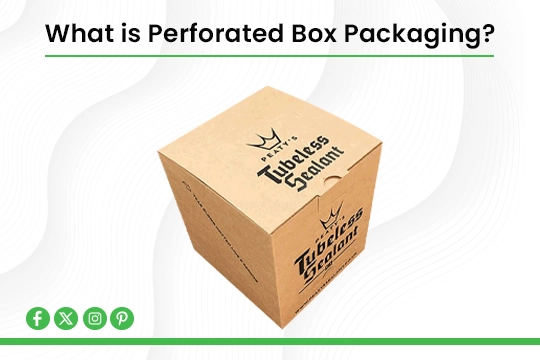What is Perforated Box Packaging?
Perforated box packaging is a special kind of box that has small holes or slits in it. These holes help air move through the box, which is great for keeping products fresh. This type of packaging is often used in industries like food and cosmetics because it helps protect items while making them look good.
Table of Contents
ToggleWhat is Perforated Box Packaging?
Perforated box packaging consists of a box with tiny holes called perforations. These holes allow air to pass through, which can prevent certain products like fruits, vegetables, or cosmetics from getting too humid or wet. Controlling how much air flows inside the box helps products last longer.
Key Materials
Most perforated boxes are made from lightweight materials like cardboard, kraft paper, or corrugated board. These materials are easy to cut, making it simple to add the perforations, and they are often eco-friendly. Using these materials also makes the boxes strong but light, which helps with shipping and protecting items.
Benefits of Perforated Box Packaging
Airflow Keeps Things Fresh
The small holes in perforated boxes help with airflow, which keeps the items inside fresh for longer. This is especially useful for food items like fruits and vegetables that need air to stay crisp and tasty. The air prevents moisture from building up, which can make products go bad.
Moisture Control
Perforated boxes don’t trap moisture inside. When air can move freely, it stops water from building up and causing things like mold or rot. For products that are sensitive to too much moisture, like certain types of food or cosmetics, this feature is very important.
Lightweight and Cost-Effective
Perforated boxes are often lighter than regular boxes, which makes them cheaper to ship. Less weight means that companies save money when they send products from one place to another. Also, since they use fewer materials, perforated boxes can be less expensive than non-perforated ones.
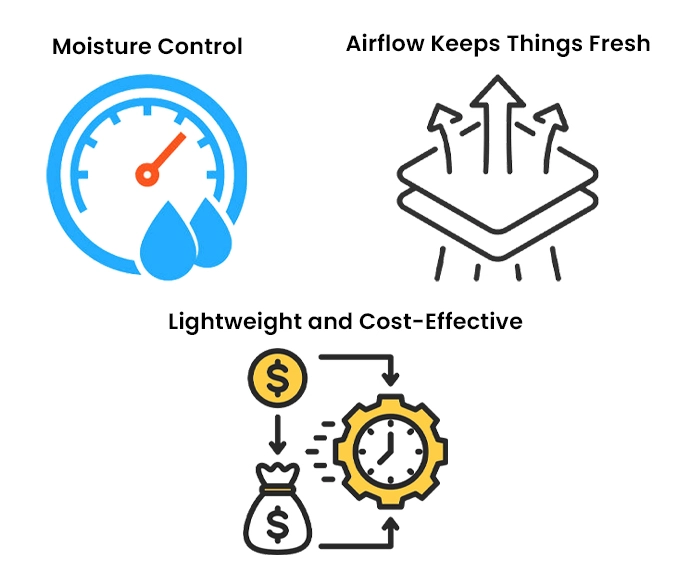
To find out why custom packaging is important for products and brand visibility, read our previous article: Why is custom packaging important for your product? For detailed insight.
Industries That Benefit from Perforated Box Packaging
Food Industry
One of the biggest uses of perforated packaging is in the food industry. Perforated boxes keep fresh fruits, vegetables, and baked goods from spoiling too quickly, allowing air to flow through the holes.
Cosmetics
In custom cosmetics packaging, perforated boxes help protect delicate items while allowing the right amount of air to flow around them. Some cosmetics must remain dry but require ventilation to stay in good condition.
Retail and Other Industries
Retail products like clothing or accessories can also be packed in perforated boxes. Not only do these boxes keep the items fresh and clean, but the holes can also make the items inside easier to see, which is good for displaying products in stores.
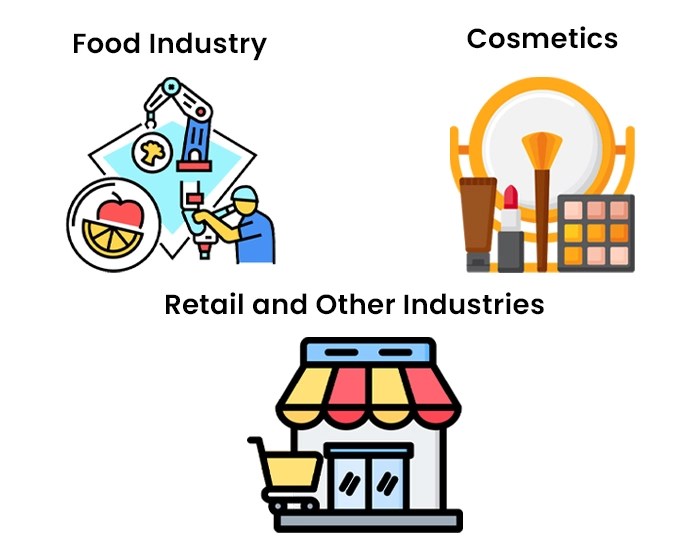
Comparing Perforated Boxes to Regular Boxes
Perforated Packaging
- Airflow and Freshness: The perforations let air in, which keeps items fresh and dry.
- Great for Food: Helps maintain the quality of fresh produce and baked goods.
Non-Perforated Packaging
- More Protection: Provides stronger protection against outside factors like dust and dirt.
- Less Ventilation: It doesn’t allow as much air in, which can be a problem for products that need ventilation.
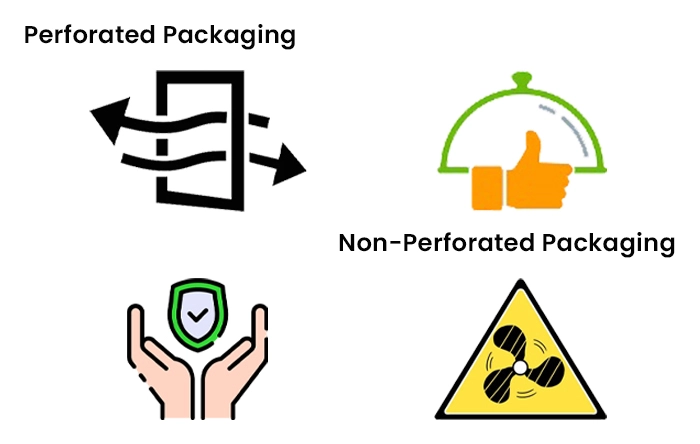
Pros and Cons of Perforated Box Packaging
Pros
- Keeps Products Visible: The holes or slits in perforated boxes can let you see the products inside, which is helpful for retail.
- Eco-Friendly: If the boxes are made of decomposable or recyclable materials, they’re better for the environment.
Cons
- Sensitive Products: Some items might spoil faster if exposed to too much air through the perforations.
- Less Protection: The holes can make the box less protective against water, dust, or bugs.
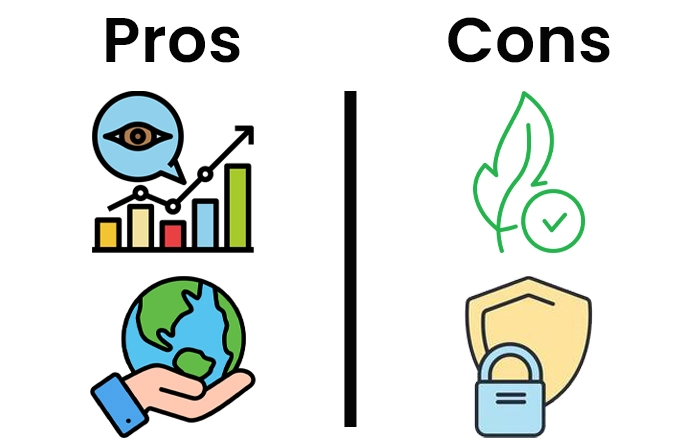
Why Perforated Packaging is Best for Food and Retail
Keeping Food Safe
For food items, perforated packaging helps them stay fresh by allowing air to circulate. This is especially important for products like fruits, vegetables, and bread. The boxes meet safety standards because they help control the temperature and moisture inside, making sure the food doesn’t spoil quickly.
Perfect for Retail Branding
Perforated box packaging offers cool ways for companies to show off their brand. Businesses can design their boxes with logos, fun colors, and creative patterns. These designs help people recognize the brand easily. You can shape the holes in the box to match the product inside, creating unique packaging. Additionally, using eco-friendly materials shows customers that the business cares about the environment, which can attract more customers!
Why Choose PackagingDot for Perforated Box Packaging?
Perforated box packaging is a smart, eco-friendly way to package products that need ventilation and protection. From keeping food fresh to making cosmetics look appealing, perforated boxes help companies offer the best custom boxes for their products. By choosing PackagingDot for your perforated packaging needs, you ensure your products remain in excellent condition while enjoying benefits like airflow, moisture control, and enhanced branding opportunities. Whether in the food industry or for custom cosmetics packaging, PackagingDot helps reduce shipping costs and improve product presentation.
Frequently Asked Questions
Fresh produce, baked goods, cosmetics, and retail items like clothing are ideal for perforated packaging. These products benefit from the extra airflow and freshness.
The tiny holes in the box allow air to move in and out, which stops moisture from building up and keeps food fresher for longer.
Yes! Many companies choose perforated boxes made from recyclable or decomposable materials. This choice allows them to be environmentally responsible while providing effective packaging solutions.
The cost of the Best Custom Boxes depends on factors like size, materials, and order quantity, but bulk orders often reduce the price per unit.
